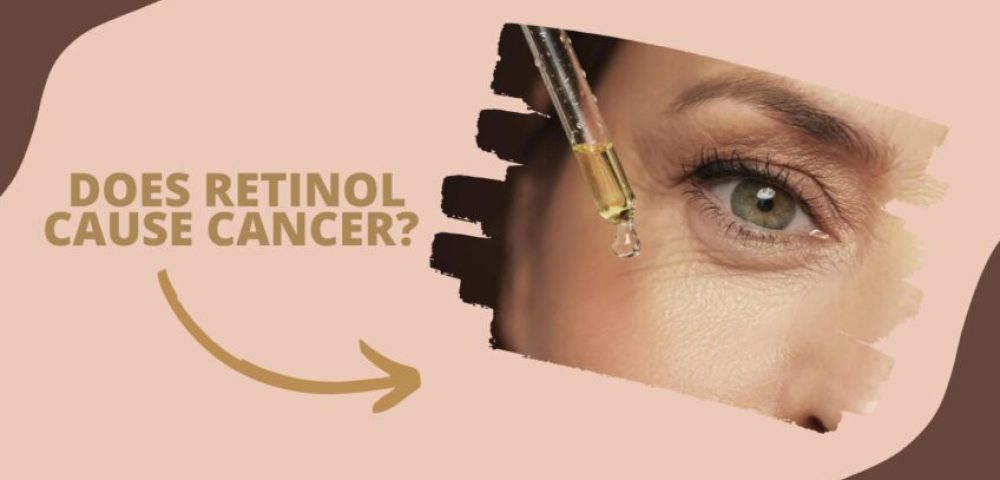Wondering if Retinol-based skincare is safe? All the mixed opinions on Retinol make it difficult to know. Let’s get to the truth! Is there a genuine risk of cancer connected to this popular component?
Page Contents
- 1 Facts: Does Retinol Cause Cancer?
- 2 Availability of Retinol Treatments
- 3 Uses of Retinoids and Retinol in Medical Conditions
- 4 Negative Side Effects of Retinol on Skin
- 5 Long-Term Safety and Alternatives to Retinol
- 6 Who Should Avoid Using Retinol and Its Potential Health Risks
- 7 FAQs: Does Retinol Cause Cancer?
- 8 Conclusion and Key Takeaways
- 9 Conclusion
Facts: Does Retinol Cause Cancer?
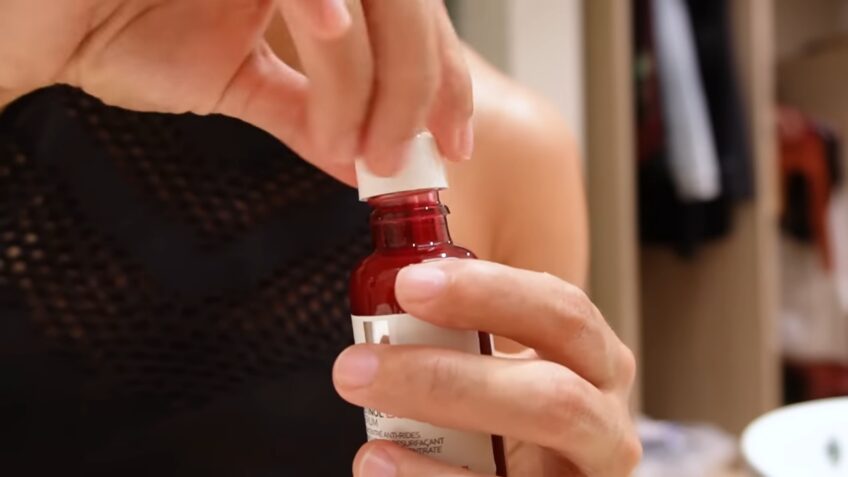
- Fact 1: There is no concrete evidence that retinol causes cancer.
- Fact 2: Some studies suggest that high doses of retinol may increase the risk of developing lung cancer.
- Fact 3: It has been shown to have anti-cancer properties, and is commonly used in cancer treatment.
- Fact 4: The American Cancer Society has stated that there is currently no evidence that these products increase the risk of skin cancer.
- Fact 5: Overuse of it can cause skin irritation and sensitivity, and it is important to use this ingredient as directed.
Sources:
- Mayo Clinic
- National Cancer Institute
- PMC
- American Cancer Society
- Healthline
Retinol, a derivative of Vitamin A, has been praised for its powerful anti-aging and acne-fighting abilities. But in recent times, with social media and the spread of false info, there’s a worry about its safety in skin products. One fear is that retinol can lead to cancer. This worry is founded, as research into the connection between retinol and cancer has been done for years. Here, we’ll analyze the evidence and uncover the truth about retinol and cancer.
Defining Retinol and Its Popularity in Skincare
Retinol is a retinoid often used in skincare products to reduce wrinkles, pigmentation, and other signs of aging. Its popularity is due to its effectiveness in improving skin texture and giving a youthful look. However, there’s perplexity regarding its long-term use and the possible harm it can cause, like skin cancer.
Dermatologists may prescribe stronger retinoids, like tretinoin, for those with severe acne, psoriasis, warts, and other skin conditions. But there are negative side effects, such as dryness, irritation, skin color changes, sun sensitivity, redness, swelling, crusting, blistering, and retinol burn. These can lead to acne breakouts, eczema flare-ups, discoloration, stinging, and skin purging.
Fortunately, there are alternatives to retinol. Examples include bakuchiol, rambutan, rosehips, carrot seed oil, and products with vitamin C and antioxidants. These alternatives can improve skin texture, reduce inflammation and irritation, and promote healthy skin without skin cancer risk.
Potential Harmful Effects of Retinol
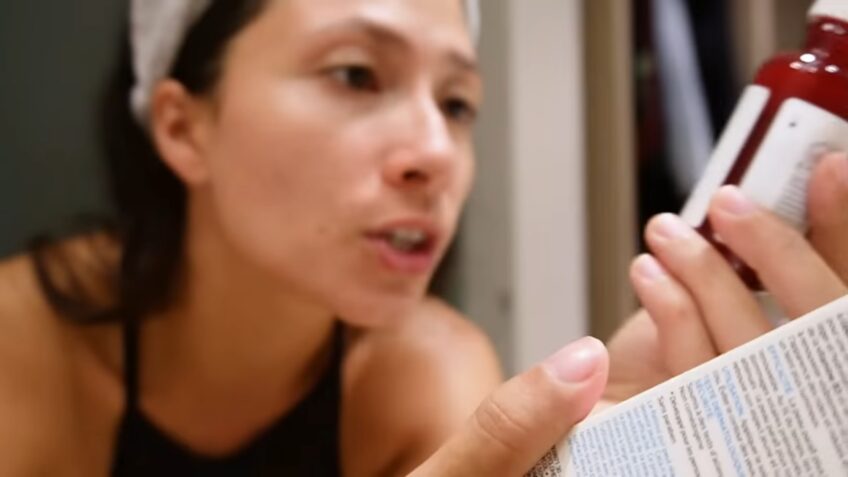
Retinol, derived from Vitamin A, is popular for its anti-aging and skin-brightening benefits. But, it has potentially harmful effects that cannot be neglected. These can be more extreme if you use prescription-strength retinol or have sensitive skin.
Let’s look at the potential harms:
- Heightened sensitivity to sunlight – it can make skin more prone to UV rays. This can cause sunburn and skin damage.
- Skin discoloration – It can cause uneven skin tone, particularly for those with delicate skin, and can damage the skin’s barrier.
- Dryness and irritation – Dryness, flakiness, and irritation are common side effects, particularly for those with existing skin conditions like eczema or rosacea.
- Pregnancy concerns – It should not be used during pregnancy as it may harm the developing fetus.
To use it safely and responsibly, one must implement proper sun protection. Wear sunscreen daily and avoid too much sun exposure. Also, start with lower concentrations and increase over time to avoid irritation. Plus, don’t overuse it and seek a dermatologist’s advice, if you experience any negative reactions.
Pro tip: To get the maximum benefits while minimizing the potential harm, use retinol with hydrating ingredients like hyaluronic acid or ceramides. This will keep the skin moisturized and reduce dryness and irritation.
Availability of Retinol Treatments
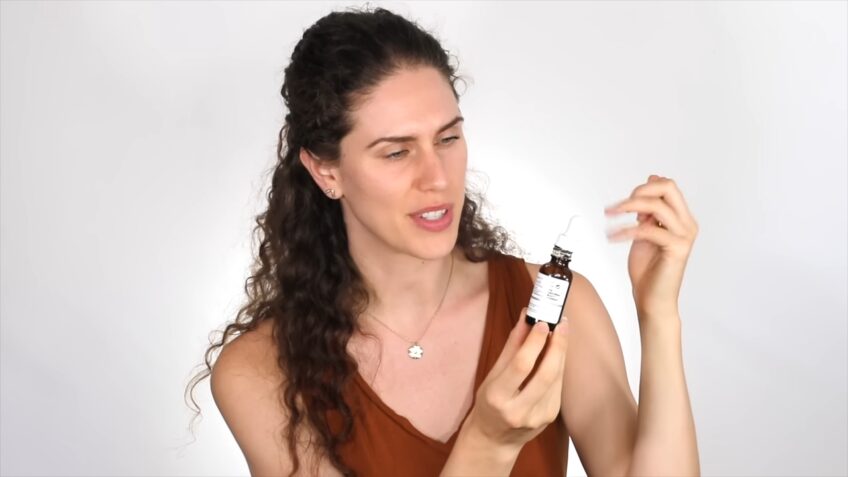
It is known for its anti-aging and skin-rejuvenating properties. But, there is the worry that it may increase the risk of cancer. This has made many people who use these products, or are thinking about them, very concerned.
The use of retinol treatments has led to much discussion about their safety and effectiveness. People ask, do the benefits outweigh the potential risks? In this article, we will look at retinol and cancer. We aim to give you an informed understanding of the safety of this popular skincare ingredient.
Over the Counter Retinol and Retinoid Treatments
Retinol and Retinoid treatments have been easily accessible over the counter for some time. They are great for treating acne, fine lines, and wrinkles. However, one burning question still remains: do they cause cancer?
The treatments work by speeding up cell renewal and collagen production, resulting in smoother, healthier skin. Although some studies suggest that overusing it may increase the risk of skin cancer, there is no definite proof.
Many elements can lead to skin cancer, e.g. sun exposure, genetics, and lifestyle. So, it’s vital to take preventive measures, such as wearing sunscreen, avoiding tanning beds, and limiting sun exposure.
They have long been considered the gold standard for skincare. Doctors have recommended them for ages to help patients achieve youthful-looking skin. Still, it’s crucial to be mindful of the products we use, particularly as the beauty industry shifts from unsustainable products.
Here are some tips to keep in mind when using these treatments:
- Use as directed: Always follow the instructions on the package or what your doctor has advised.
- Consult a dermatologist: If you have sensitive skin, it’s best to consult a dermatologist to stay away from any reactions.
- Sun Protection: Wear sunscreen and avoid too much sun exposure when using these products.
To sum up, they are effective for many skin care issues. Even though the risk of skin cancer is there, it’s important to take preventive steps to reduce it. Consistent use, and following directions, will lead to desired results.
Prescription Strength Retinol Medications from Dermatologists
They are a popular acne, fine lines, and wrinkles treatment option. To get these medications, you need a prescription from a licensed dermatologist. This is because they are potent and could be harmful.
Dermatologists may recommend them when over-the-counter options no longer work or if stronger treatment is needed.
These medications work by increasing cell turnover and stimulating collagen production. This leads to smoother, clearer skin. However, redness, peeling, dryness, and sensitivity to the sun are some side effects.
Although there’s been concern about retinol and cancer, studies suggest it has anti-cancer properties when used in moderation. So, follow your dermatologist’s advice to minimize risks.
Uses of Retinoids and Retinol in Medical Conditions
Retinol is one of the most popular forms of retinoids and is often used for anti-aging and skin rejuvenation. But, the safety of retinoids has been debated, with some studies linking them to cancer. Many people who rely on these compounds worry.
Treatment of Acne
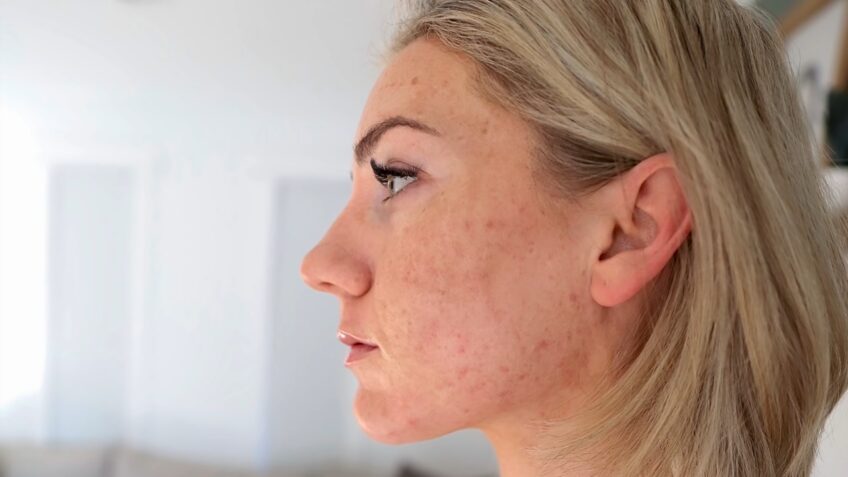
Retinoids and Retinol are used to treat acne, a skin condition affecting millions. They work by unclogging pores, reducing inflammation, and promoting new skin cells. Retinoids are prescription medications in different strengths and forms. On the other hand, Retinol is a milder form of vitamin A found in many skincare products.
Retinoids are known to be effective against both mild and severe acne. They regulate skin cell growth and differentiation, preventing more acne from forming. Additionally, they reduce inflammation, lessening redness and swelling. Retinoids can be taken orally or used topically, depending on the severity of the acne.
In comparison, Retinol is a milder choice. It is present in many creams, serums, and oils. Though it works similarly to Retinoids, it is less potent and has fewer side effects. It might be a good option for those with sensitive skin or who cannot tolerate Retinoids.
They are widely accepted by dermatologists and skincare professionals for acne treatment. Though there is a small potential for Retinoids to cause cancer, the benefits outweigh the risk.
Treatment of Psoriasis and Warts
Millions of people suffer from psoriasis and warts worldwide. Treatment options exist, but some have tried retinol, an alternative therapy.
Psoriasis is a chronic autoimmune disease. It creates red, scaly patches on the skin. It’s painful and embarrassing, but there is no known cure. Warts are caused by a virus and appear anywhere on the body. They are usually harmless but can be unsightly and contagious.
If you’re thinking of using retinol, ask your doctor. They can help you decide if it’s a good option. Weigh the risks and benefits.
More research is needed to confirm the safety and effectiveness of retinol. Always talk to a healthcare professional before trying any alternative therapies.
Treatment of Aging and Wrinkles
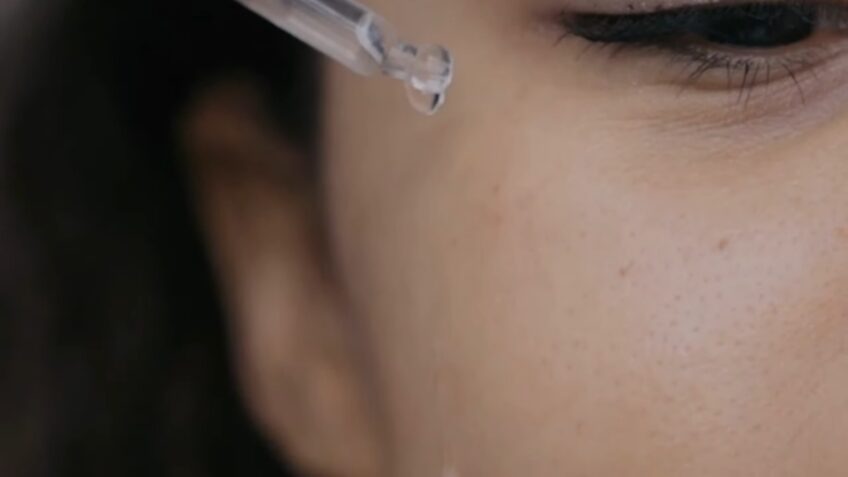
As we explore anti-aging treatments, it is essential to remember there is no one-size-fits-all solution. Technology has made these treatments more accessible. Yet, the market is full of unreliable products. To stay safe, it is important to be careful and aware.
These are some common treatments:
- Topical creams with retinoids, hyaluronic acid, and antioxidants.
- Chemical peels to exfoliate and improve texture.
- Botulinum toxin injections to relax facial muscles.
- Hyaluronic acid fillers like Juvederm and Restylane.
However, there are fraudulent schemes around anti-aging treatments. Products marketed under popular brands may contain dangerous substances, leading to skin damage.
Negative Side Effects of Retinol on Skin
No doubt, Retinol is a star when it comes to making skin look better. But, there may be negative consequences for some users. One of the biggest worries is if this ingredient can cause cancer. It’s scary to think about using something that can cause such a serious health problem.
Side Effects of Retinol
It is a popular skincare ingredient with many benefits. But there are some downsides too. Side effects can range from mild to severe. It’s important to know what these are so you can take precautions. These are the most common:
- Dryness and flakiness. It is a strong exfoliant, so your skin may become dry in the first weeks of use.
- Redness, irritation, and sensitivity. If you have sensitive skin, this could be a problem. Especially if you have rosacea or acne.
- Sun sensitivity. It can make your skin more vulnerable to sun damage, wrinkles, and even skin cancer.
- Peeling and blistering. This can happen if it is applied too often or in high concentration.
So, does it cause cancer? No. But using it without protection can increase your risk – especially if you have a family history. Wear sunscreen with SPF each day.
Risks of Prescription Retinoids and Their Side Effects
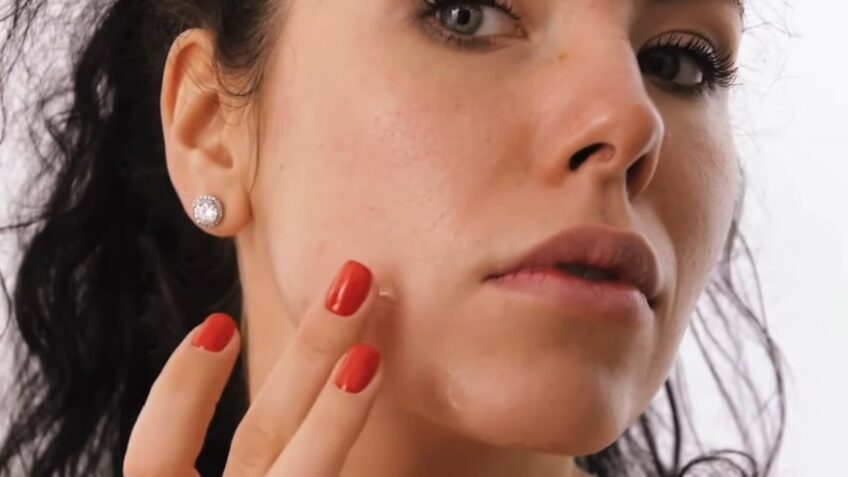
Prescription retinoids are trending in skincare, as they combat acne, wrinkles, and texture issues. But, like any medication, they come with potential risks and side effects. Let’s take a look at the dangers of retinoids and their impact on skin health:
- Skin sensitivity: Retinoids are exfoliants, so they can cause irritation and rashes, especially for those with sensitive skin. This sensitivity can stick around after you quit taking them.
- Redness and flaking: It can cause dryness, redness, and flakiness in the first few weeks. It’s a sign that it’s working, but it can be uncomfortable and ugly.
- Sun sensitivity: Retinol and retinoids make the skin more vulnerable to sun damage, so extra protections are a must, such as a sunscreen, protective clothing, and avoiding direct sunlight for long periods.
- Birth defects: Mostly when taken by pregnant women, retinoids like isotretinoin and tazarotene can cause birth defects like skull malformations, mental retardation, and heart defects. Women of childbearing age should not take retinoids until they’re sure they’re not pregnant.
What about non-prescription retinol – popular in skincare too? Rumors of it causing cancer have been out for years, but there’s no real evidence. We don’t know the long-term effects of regular retinol use either, so more research is needed.
Factors Increasing the Risk of Side Effects
Reactions may range from minor to severe, depending on the person. Here are a few factors that may increase the risk of negative side effects:
- Skin Sensitivity: If your skin is sensitive, you are more likely to have an adverse reaction. If so, use a lower concentration or use it less often.
- Overuse: Too much retinol, or using it too often, can lead to irritation, dryness, and peeling.
- Incorrect Application: Applying it improperly means that it won’t absorb evenly, raising the risk of side effects. Therefore, follow the instructions on the packaging.
- Other Skincare Products: Using it with exfoliating products, salicylic acid, or benzoyl peroxide can increase the chances of side effects.
- Sun Exposure: It can make your skin more vulnerable to the sun, so always wear sunscreen.
The side effects of retinol can be managed by using it correctly. If you experience any troubling symptoms, seek medical help.
Retinol Purging and Retinol Burn
They are common reactions people experience when they start using these products.
Retinol Purging is when acne or other skin problems suddenly become worse when using retinol products. This is because using it speeds up the process of skin cell turnover. This means the skin is getting rid of dead cells quicker than normal, which can cause clogged pores and breakouts. The purging period can last weeks or months, depending on skin type and retinol concentration.
Retinol Burn is a stronger reaction that happens when too much retinol is used or the product has a higher concentration than the skin can handle. Symptoms include redness, dryness, and flakiness in the affected area. Blistering or peeling can also occur. Retinol burn can last for up to a week, seeing as the reaction is more severe.
To avoid these side effects, here are some tips:
- Start with a low concentration and increase gradually.
- Don’t mix with other treatments.
- Use sunscreen regularly.
- Moisturize.
By following these tips, you can safely enjoy the benefits of retinol.
Long-Term Safety and Alternatives to Retinol
As we age, wrinkles, fine lines, and sagging skin start to appear. This has sparked an interest in anti-aging skincare products. This vitamin can stimulate collagen production, boost cell turnover and reduce the visibility of wrinkles. But, many people are concerned about its long-term safety and if it increases the risk of cancer.
Studies on the Safety of Retinoids and Retinol
Retinol, a form of vitamin A, has recently become popular in skincare products due to its anti-aging effects. But is it safe? “Studies on the Safety of Retinoids and Retinol” dives into scientific research to answer this question.
Results are mixed. Some studies say it increases cancer risk; others disagree. Plus, many studies were done on animals, not humans.
But don’t worry! There are alternatives. Bakuchiol, a plant-based ingredient, is similar to retinol but without risks. Rosehip oil and niacinamide (vitamin B3) are also natural alternatives.
Everyone needs something different. So, seek advice if you’re unsure which ingredients are best for you.
Precautions for the Safe Use of Retinol
Retinol is a common skincare ingredient that has anti-aging properties. But, some folks worry about its long-term safety and possible cancer connections. It’s wise to understand the precautions for safe retinol use.
- Talk to a dermatologist: Before using it, get a dermatologist’s opinion. They’ll assess your skin type and health history, then suggest the best concentration and frequency.
- Follow directions: It should be used as stated. Start with a low concentration and increase over time. DON’T overuse it as it can cause irritation, redness, and peeling.
- Wear sunscreen: Retinol makes your skin more sensitive to the sun. Wear a broad-spectrum sunscreen with SPF 30 or higher.
- Pregnant? Steer clear: Retinol is linked with birth defects, so pregnant women should avoid it.
- Consider alternatives: Peptides and antioxidants can deliver similar results without the potential risks.
Natural Alternatives to Retinol

It has been a popular ingredient in the beauty industry for its anti-aging properties. But, there are worries about its long-term effects on health. So people are looking for natural alternatives that can give similar results without the risks.
Here are some:
- Bakuchiol: from the Psoralea corylifolia plant. It can reduce fine lines and wrinkles like retinol.
- Rosehip oil: rich in vitamin A, a natural alternative to retinol.
- Green tea: an antioxidant that protects the skin and has anti-aging effects.
- Hyaluronic acid: won’t replace retinol, but can plump skin and reduce wrinkles.
- Resveratrol: from grapes, it can provide anti-aging benefits like retinol.
These natural alternatives might not be as effective as a synthetic ones. Before changing your skincare routine, talk to a healthcare professional or dermatologist.
Foods for Healthier Skin
Achieve healthier skin? Diet is key! Foods with antioxidants, vitamins, and minerals nourish and protect the skin from free radicals. Here are the best for better skin:
- Leafy greens – Spinach, kale, and other leafy greens are packed with vitamins A and C, neutralizing free radicals.
- Fatty fish – Salmon, mackerel, and other fatty fish contain omega-3 fatty acids to reduce inflammation.
- Nuts and seeds – Almonds, walnuts, and chia seeds are all loaded with vitamin E, protecting against UV rays and environmental pollutants.
- Tomatoes – Lycopene in tomatoes shields skin from sun damage, reducing skin cancer risk.
- Green tea – Polyphenols in green tea have anti-inflammatory and antioxidant properties, protecting the skin from damage and skin cancer.
Stay hydrated too! Dehydration causes dry, dull skin and more wrinkles. Retinol has been debated in relation to cancer. These foods are a safer, natural way to get healthier skin! Plus, these foods improve your skin and offer other health benefits.
Pro tip: Incorporate these foods into your daily diet for healthier skin and well-being.
Who Should Avoid Using Retinol and Its Potential Health Risks
Some people are scared of using it due to safety concerns. One of the main worries is if it causes cancer. This article will look into this issue and figure out who should avoid it and what health risks it may bring. Read further if you’re considering using it but have worries about its safety.
Retinol Use for Sensitive Skin and Rosacea
It’s famed for its anti-aging properties, which improve skin texture and reduce wrinkles. But, those with sensitive skin or rosacea should avoid it, as it can cause further irritation, dryness, redness, and even rash.
If you have either of these conditions, chat with a dermatologist before using retinol. They can recommend alternative products such as:
- Lower concentrations of retinol
- Retinol alternatives like bakuchiol or rosehip oil
- Gentle exfoliants like lactic or mandelic acid
- Hyaluronic acid to hydrate
If you don’t have sensitive skin or rosacea, start slowly with low concentrations and use it once or twice a week. As for cancer risk, there’s no evidence that retinol causes it. But, excessive Vitamin A supplements can lead to certain types of cancer, so ask your doctor before taking any.
Remember, if you have sensitive skin or rosacea, use products formulated for your skin type and follow directions. Taking care of your skin now can help prevent further damage.
Risks of Retinol Use During Pregnancy
Pregnant women should steer clear of retinol-based products, as they can be a teratogen. This means it can cause birth defects and abnormalities in the growing fetus.
It’s best to avoid skincare products with high levels of Vitamin A, such as this one, retinoic acid, and retinoids. These ingredients are present in OTC creams, gels, lotions, and prescription drugs used to treat acne, psoriasis, and other skin issues.
Risks associated with retinol use during pregnancy include:
- Birth Defects: Heart defects, neural tube defects, and cleft palate.
- Toxicity: High Vitamin A levels can cause nausea, vomiting, and dizziness.
- Miscarriage: Women who use retinol early in pregnancy may have an increased risk of miscarriage.
It is usually safe for non-pregnant people, but over-usage can cause redness, itching, and peeling of the skin. It should not be combined with certain medications, such as antibiotics and blood thinners.
Pro tip: If pregnant, opt for natural ingredients such as aloe vera, chamomile, and lavender. Read labels carefully and stay away from anything that could hurt you or your growing baby.
Dangers of Using Retinol Cream
Retinol cream is a popular cosmetic, known for its skin benefits. But, unfortunately, it also has risks. This sub-heading will discuss the health hazards associated with this cream.
These are the dangers of using retinol cream:
- Skin irritation and redness: Burning, stinging and peeling can occur, especially if a high concentration or frequent use.
- Increased sensitivity to the sun: You’re more prone to sunburn and damage when outdoors, without protection.
- Pregnancy risks: It can harm the baby if used excessively or during the first trimester. Women trying to conceive should also avoid retinol cream, as it can interfere with fertility.
- Interference with other medications: Retinol cream can reduce its effectiveness, or cause harmful side effects when combined with other skincare products.
Although it hasn’t been proven to cause cancer, it’s still important to use it responsibly. Those with sensitive skin or vitamin A allergies should avoid it, as should pregnant and nursing women, and children under 12.
To reduce the risks, use sparingly and under professional guidance. When outdoors, wear sunscreen and protective gear, particularly during peak sunlight hours.
Pro tip: There are safe alternatives to retinol cream, such as vitamin C, peptides, and glycolic acid. These ingredients can help achieve beautiful skin, in a healthier and safer way.
Importance of Discussing Retinol Use with Physicians
It is essential to chat with physicians regarding the use of Retinol in skin care. It is a popular ingredient in skincare products that promise to diminish blemishes, fine lines, and wrinkles. However, when taken in high doses, it can cause harm, like irritation of the skin and even cancer. Thus, consulting your physician is imperative to ensure that the product is suitable for your skin type and condition.
Why is talking to your physician so important?
- Personalized attention: Physicians know how it affects different skin conditions. They can give advice that is custom-made to fit your needs.
- Managing expectations: Physicians can help you set practical expectations on the benefits and risks of Retinol. This can help you avoid disappointment and be happy with the results.
- Preventing bad reactions: It can cause skin irritation or other side effects, especially when taken in large doses. Physicians can watch your skin’s reaction to it and suggest suitable doses and how often you should use it.
- Spotting potential risks: Although it is generally safe for most folks, some may be more prone to side effects, such as those with sensitive skin or a history of skin cancer. Physicians can determine the potential risks and suggest alternative products or treatments.
Consulting your physician is important to guarantee that you are using Retinol safely and successfully. Physicians can offer personalized guidance, regulate expectations, prevent adverse reactions, and identify potential risks. If you are thinking of adding Retinol to your skincare routine, make sure to consult your physician first.
Pro Tip: When speaking with your physician about Retinol, make sure you give a comprehensive description of your current skincare routine and any past reactions or allergies to products. This can help your physician provide advice tailored to your needs.
FAQs: Does Retinol Cause Cancer?
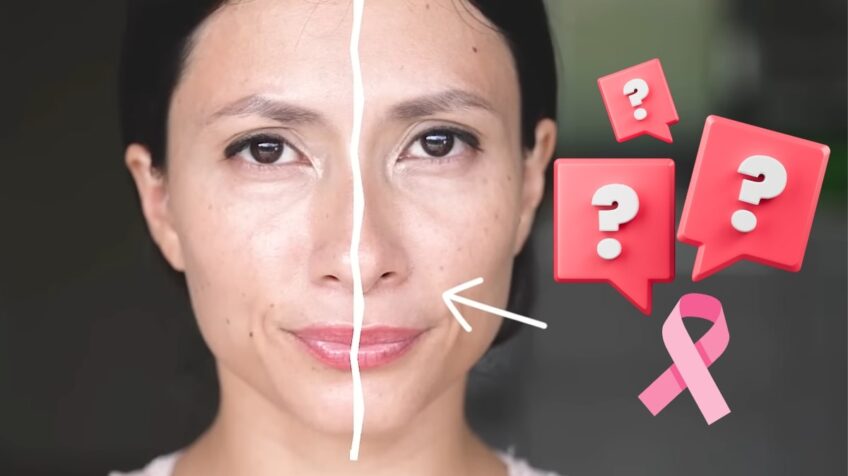
How much retinol is safe to use?
The safe daily intake of it can vary depending on individual factors such as age and gender. However, most health organizations recommend a maximum daily intake of 3,000-5,000 IU of it for adults.
Can retinol be harmful to the skin?
It can be irritating to the skin, especially in high concentrations. It can cause redness, peeling, and sensitivity. It is important to start with a low concentration and gradually increase usage to avoid irritation.
Are there any side effects of using retinol?
Some common side effects of using it include dryness, flakiness, and sensitivity. In rare cases, it may also cause allergic reactions or skin discoloration.
Can retinol be used during pregnancy?
It is not recommended to use it or other vitamin A derivatives during pregnancy. High doses of it have been linked to birth defects.
Is there a difference between prescription retinol and over-the-counter retinol?
Prescription products contain a higher concentration of retinoids than over-the-counter products. They are generally more potent and effective but may also be more irritating to the skin.
Conclusion and Key Takeaways
Does Retinol cause Cancer? It’s a big question, especially with Retinol-based products so popular and Cancer rates increasing. Nobody wants to trade beauty for health risks. So, let’s see what research has to say.
Here’s the summary:
- Retinol does not appear to increase cancer risk.
- Although, further research is needed.
- But, for now, readers can rest assured that Retinol isn’t linked to Cancer.
Awareness of Retinol Side Effects and Safety Precautions
Like any other ingredient, it can cause side effects with improper use. So, it’s important to be aware of the possible retinol side effects and take safety precautions.
Be aware of these side effects:
- Skin irritation: Redness, dryness, and flakiness, especially in sensitive skin.
- Increased sun sensitivity: Easier sunburns and skin damage from UV rays. Wear SPF with retinol products.
- Peeling: Rough and uneven texture.
- Discoloration: Hyperpigmentation, resulting in brown spots.
To prevent these, start with a low concentration of it and increase it gradually. Use retinol products at night and moisturize your skin regularly. Pregnant women should avoid it as it has been linked to birth defects. Don’t use retinol with other exfoliating agents like AHAs, BHAs, or scrubs.
Conclusion
In conclusion, there is currently no conclusive evidence to suggest that retinol causes cancer. While high doses of retinol have been linked to an increased risk of certain types of cancer in animal studies, the research on humans is inconclusive. However, it is important to use retinol products as directed and to consult with a healthcare professional if you have concerns about the safety of using retinol.
It is also important to maintain a balanced and healthy lifestyle that includes a nutritious diet, supplements. exercise, and regular health checkups to help reduce the risk of cancer and other health issues. Overall, more research is needed to fully understand the potential risks and benefits of using retinol, but at this time, there is no need for alarm regarding its potential to cause cancer.
Astrona Knight is the Editor-in-Chief at Fischer Institute, where she shares her extensive knowledge on health and wellness topics. Her insightful articles cover everything from diet and nutrition to mental health, providing readers with practical tips and the latest research findings.
Also Read:
- Understanding UTI Complications - Can it cause spotting?
- Can Hemorrhoids Cause Vulvar Pain? - Understanding…
- How Long Does Edamame Last in The Fridge? - From…
- How Long Does Cooked Turkey Breast Last In The…
- How Much Does An Almond Weigh - Benefits of Almond
- What Kind Of Salads Does Burger King Have - Burger…

